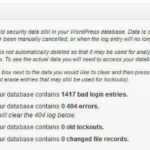Virtually every business produces online content in some form. More often than not, companies primarily generate that content through a blog. And blogs are great, in large part, because they can be so versatile. However, that doesn’t mean businesses should use a blog as the platform for all of their content. Indeed, certain types of content are suited better to other mediums. Here, we’ll review some blogging best practices and explain what marketers should seek to include –– and exclude –– from their business’s blog:
What Makes Good Blog Content?
Effective blog posts have a lot in common with quality news articles. Generally speaking, the best blogs are timely, contain lots of useful information, and are concise. That doesn’t mean blog posts have to be short –– rather, that they should address the most important customer issues in an efficient manner. What’s more, timeliness is not as important in blog writing as it is in journalism. Instead, businesses often create “evergreen content” –– that is, articles that remain prescient regardless of when they were published or encountered. For example, a blog post explaining how to change a tire is unlikely to be particularly timely, but will contain relevant information for years to come.
The most important aspect of blog content is how useful consumers find it. Quantifying “usefulness” though, can be quite tricky. Effective blogs might contain DIY instructions. Or they might answer a common consumer question. Or they might even bust a prevailing myth in your industry. The ultimate goal of a blog, though, should be to educate consumers. By informing them, you can gain their trust, and eventually, their patronage.
What Not to Include in Blog Copy
As established above, blogs should not exist as a digital space to dump content. For instance, information about a company’s employees is more appropriate on an “about-us page” than a blog post. Similarly, content about new products, services, or ecommerce features may be better placed elsewhere on your website.
In that same vein, it’s typically not a great idea to create blog posts that serve essentially as advertisements for your business. There’s a big difference between pushing a product and writing quality blog content. Save the former for ecommerce SEO efforts.
Other practices that professionals should avoid when creating blog content are:
- Copying the work of others (plagiarism).
- Keyword stuffing for SEO purposes.
- Writing multiple variations of the same blog.
- Publishing factually dubious claims.
Conclusion
Whether your business manufactures cell culture microplates or you offer pest-control services, all companies can benefit from engaging and compelling blog content. Following the principles laid out above will help you do just that!











